Respect the people behind the art

East Asian media has become increasingly popular throughout the years. The Sidekick staff writer Joanne Kim thinks many obsess over Asian culture while doing nothing to stop Asian hate.
December 8, 2021
“Oh my God, Joanne. I’m literally more Asian than you.”
I stared blank-faced at my white friend who currently had a K-pop music video pulled up on her phone. She kept up with her favorite K-pop groups religiously and liked to talk about them with me. And despite my lack of interest and knowledge, usually, I didn’t mind. But the words that just came out of her mouth made me clench down on my teeth
It sure is a good time to be Asian, am I right?
As East Asian media grows in popularity in the West, the Hallyu wave is booming. Watching anime is considered normal and “Squid Game” has gained international success, generating nearly $900 million for Netflix. It is almost like our elderly didn’t get murdered at the start of the pandemic. It is not trendy to be Asian-phobic anymore – committing hate crimes against Asians and blaming them for COVID-19 isn’t cool – but objectifying us is.
Like most East Asian Americans, I grew up being forced to accept microaggressions as the norm. The usual “what type of doctor do you want to be?” “your eyes are small,” “your food smells weird.” But the current glamorization of my culture is different.
More than once, people have said to me: “Joanne, I watched a K-drama yesterday. I wish I was Korean like you.” When I’m on Instagram, I see Korean and Japanese in bios as an aesthetic add-on despite the user not being of either ethnicity and not living in either country.
The internet is a cesspool of racism against East Asians, from cosplayers taping their eyelids to blatantly white people claiming to be transracial Korean to the ubiquitous ethnicity superiority claims after listening to K-pop (“I’m more Asian than you” jokes).
East Asian representation in the United States has increased alongside the popularity of anime, K-pop and K-dramas, but it isn’t enough. Consumption of a culture’s media and respect for the people behind it are two different things. While appreciating the former, Americans miss the latter.
Love and hate for Asian people occur simultaneously. In the same era that K-pop fans rule the internet and “Squid Game” reviews are through the roof, Asian people face racism in both violent, overt forms and microaggressions that leave a lasting impact. It is wrong for people to care more about commercializing a culture and turning it into an aesthetic than about the violence and blame pinned on Asian people. Being human and treating humans right matters more than staying on-trend.
It seems to me that non-Asians tend to go through spurts of temporary racial acceptance driven by an appreciation for our culture’s art, with the length of such acceptance dependent on how long we can appease, entertain and cater to them through mass media.
Though it may appear to be a harmless interest in a different culture, this form of consumption is unhealthy. When you romanticize us, you are projecting a certain image across an entire race and treating East Asian people as a monolith. Not only that, but it also makes us extremely uncomfortable, especially when these individuals assume they’ve had the same life experience as us just because they started listening to K-pop or watching anime. For them, Asian culture may be something they can take on and off like a costume, but for us, it is who we are.
Cultures do not exist for your aesthetic. You cannot pick and choose the parts of a culture you like while ignoring the parts you don’t.
As of the current status quo, East Asian media is more valued than the actual people. Separating the culture from the people is inherently wrong, yet it is happening. Culture is created through ways of living that are upheld through generations. People and their cultures are intertwined; they cannot be separated in any context.
What we need now is effort. People who consume East Asian media need to put in the time to educate themselves and understand cultural context. And above all, they need to have compassion. They need to understand the Japanese and Korean-American experiences are not the idealized fantasies they expect. Consuming our media does not mean you know who I am as a person or what I’ve gone through.
Love us for our talents and respect our culture – even when it isn’t white-washed to suit your consumption.
Follow Joanne (@joan_kimm) and @CHSCampusNews on Twitter.




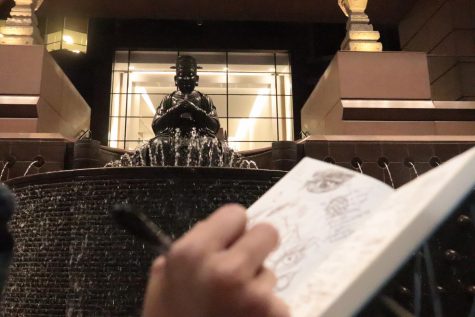
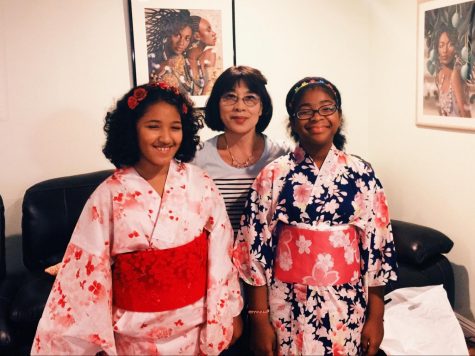
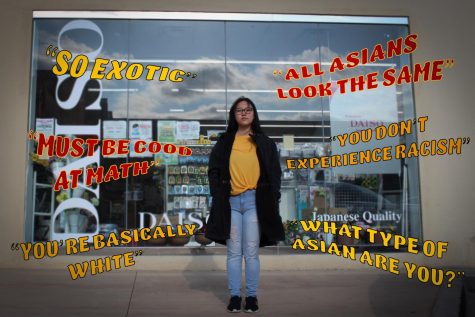

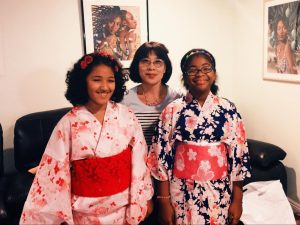
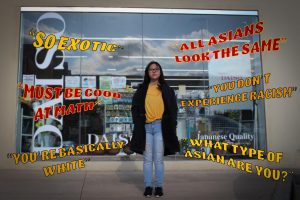
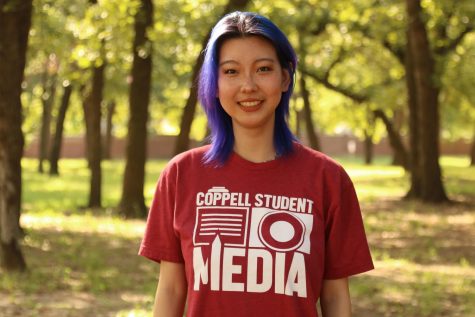







Sally Parampottil • Dec 14, 2021 at 4:04 pm
AMAZING column Joanne!! I love reading what you write, your voice comes out so clearly in this one especially. And Noor!! Incredible graphic, I adore absolutely everything about it. There is SO MUCH talent here 😀